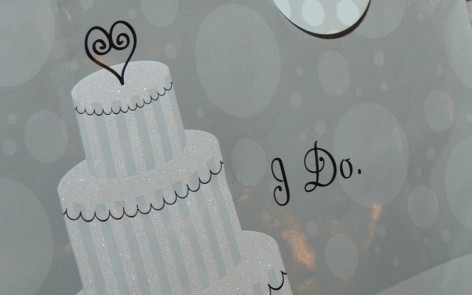For an industry with such wide-reaching tendrils, the wedding biz is shockingly stodgy on the tech front. And while more companies than ever are wading into the high tech-meets-wedding arena, it’s clear that the process of getting married is one that remains – for the vast majority of people – decidedly low-tech, both for the people tying the knot and the vendors and businesses helping them. And that means a lot of room for growth – if those in the space can figure out how to make the numbers work.
That’s what I walked away from this week’s Wed Tech thinking (that and, aha, wedding conferences have a semi-legitimate reason to showcase adult beverages earlier in the day than other tech events. And the subsequent note to self: consider covering this space more). Held in San Francisco at the Kensington Park Hotel, the event was a precursor to what I hear will be a larger summit sometime next year and sought to bring together vendors, startups and innovators attempting to push the wedding industry into tech-friendlier territory.
Thing is, most people I spoke with echoed the same issues holding it back. I’ll sum them up here:
1. The wedding industry relies on small businesses, many of them mom-and-pop outfits that cater solely to their geographic area. As is the case with so many small, locally-focused businesses, the owners are burdened with day-to-day ops to the point that they don’t maintain great web presences or effectively use social media. Many ignore digital marketing altogether. Because of this, many of the people startups and tech companies need to connect with to make their wedding-focused ventures work are, at best, uninterested in embracing technology or, at the other end of the spectrum, wary of it.
2. The customer acquisition and retention cycle is challenging. Because individuals who are getting married are only in that mode for a relatively brief period of time (though it can seem like an eternity when your best friend is in wedding planning mode and you’re like, so not), it’s problematic for companies to spend as much time and money wooing a new customer as they might in the non-wedding world because, in most cases, after the wedding comes and goes, so does that customer. Sure, she or he may mention a good experience to friends, but that’s hardly the same as bringing in a customer who is likely to make repeat purchases over a period of years.
3. Funding is tricky. There are probably plenty of reasons for this, but I’ll just call out one that more than one startup founder I spoke with mentioned to me. Though plenty of guys get married, it’s typically women who are taking the reigns with the wedding planning. And as such, it’s kind of an area that women tend to get more than men. While it’s not universally true that every funding source is male-dominated, men do tend to be at the table more often than women during startup pitch sessions. Successfully securing funding for a wedding-focused business has, I’m told, an element of education that’s often required before many investors truly “get it” and see the need and the problem that’s being solved. It’s an extra hurdle that some wedding startup entrepreneurs perceive and say they face.
4. Despite the short customer cycle, customer service has to be really on point. In fact, the whole customer experience is up against a lot of demands that you might not face in a normal ecommerce or service-based startup, one where your customers were not going through the most emotionally-charged events in their lives. So there’s little room (or less) to cut corners in the name of lean startupdom and the bar for satisfaction and scrutiny is likely to be higher than with other things that same customer is spending on, and that makes it harder to succeed as a new business trying like hell to grow.
But that certainly does not mean the marriage of wedding and tech is doomed. In fact, quiet the opposite, I think. The important thing to remember is how early on we are in the evolution of weddings as technology-aided events. The companies you’ve probably heard about (Weddington Way, Zola, Wanderable, for example) are leading the charge, with more sure to come as the space matures and grows.
In the meantime, a few notes about the images above: the slideshow kicks off with a shot of conference founder Carolyn Gerin, who is someone you would want to have as a fellow guest at any wedding (which I can say from personal experience), and continues with evidence that wedding industry conferences may be a little more fun than your average B2B con. All images are courtesy of Eversnap, a wedding-friendly startup that allows you to upload photographs to a single spot for viewing, sharing, downloading.
Images via Eversnap
wanderable, wedding industry trends, wedding startup, wedding startup funding, wedding tech, wedding technology, weddings and technology, weddington way, wedtech, zola

